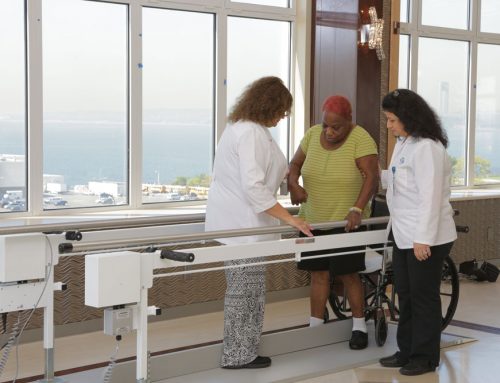There are numerous causes of anemia, although aging is not one of them, it’s a very common condition seen in adults and seniors.
Red blood cells are vital to our wellbeing. They contain an iron-rich protein called hemoglobin which carries oxygen from your lungs all around your body. Anemia occurs when the number of red blood cells is lower than normal.
Anemia is associated with a number of underlying health problems. It can be a sign of a minor issue or a more life-threatening illness. It’s important to be aware of symptoms and know what to look out for.

What are the main causes of anemia?
There can be more than one cause of anemia in adults and seniors. The causes of anemia can be broken down into two categories: either not enough red blood cells are being produced or too many are being lost.
Problems with the production of red blood cells
These include dietary deficiencies in vitamins and problems relating to bone marrow, where the red blood cells are produced.
- Iron is needed by the bone marrow to produce hemoglobin so an iron deficiency is one of the biggest causes of anemia. Not eating enough iron-rich foods leads to a lack of iron which is why vegetarians are more susceptible to anemia.
- Not having enough vitamin B12 or folic acid can lead to a lower number of red blood cells. A deficiency of B12 is commonly seen in women over 60.
- Chemotherapy and other medications can affect bone marrow cells.
- Chronic inflammation caused by cancer, rheumatoid arthritis, and kidney disease can interfere with red blood cell production.
Problems with losing red blood cells
Other causes of anemia are often due to blood loss. Losing red blood cells can be rapid or slow and steady, depending on the reason why they’re being lost.
- Injury to the body can lead to rapid blood loss. It is often visible but can also occur internally which is much harder to detect.
- Stomach or bowel cancer can cause chronic internal bleeding in the stomach or intestine. Taking aspirin on a daily basis can also lead to chronic bleeding.
- Hemolytic anemia occurs when red blood cells are destroyed. This is usually caused by a problem with the immune system and some cancers.
Symptoms of Anemia
As anemia means the body receives less oxygen, the symptoms experienced relate to a lack of oxygen. They will vary depending on the causes of anemia but may include:
- Fatigue and weakness
- Shortness of breath
- Irregular heartbeats or an increased heart rate
- Headaches and dizziness
- Pale or yellowish skin tone
- Cold hands and feet
Initially, anemia may be very mild and symptoms may go unnoticed. However, as the condition worsens, so do the symptoms.
If you are experiencing any of the symptoms, book an appointment to see a doctor. A physical examination and blood test will be needed to determine whether you are anemic.
At Haym Salomon Home for Nursing & Rehabilitation in Brooklyn, we recognize how common anemia is among adults and seniors, our highly trained staff is always alert to the symptoms. Identifying the causes of anemia is the first step in treating the problem.
This content comprises informative and educational resources only and can not be considered as a substitute for professional health or medical guidance. Reliance on any information provided in this article is solely at your own risk. If you have any inquiries or apprehensions about your medical condition or health goals, talk with a licensed physician or healthcare provider.






Leave A Comment